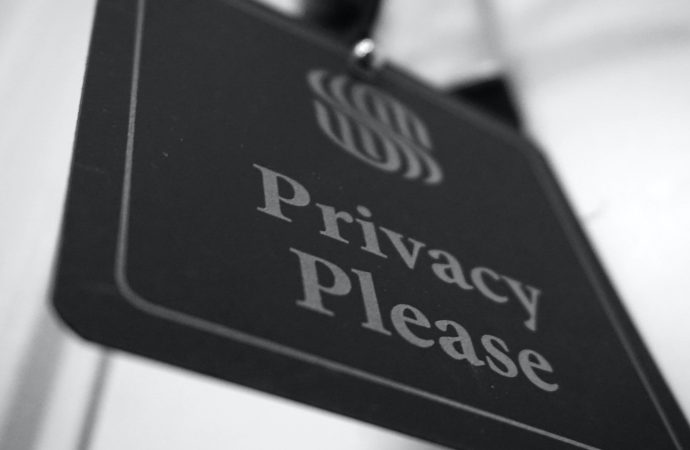In recent years, the use of police body cameras has gained incredible momentum as a potential solution to curb police brutality and misconduct. Though they may not be a panacea for all problems related to law enforcement, proponents argue that they could provide much-needed transparency and accountability within policing practices. However, with the rise of
In recent years, the use of police body cameras has gained incredible momentum as a potential solution to curb police brutality and misconduct. Though they may not be a panacea for all problems related to law enforcement, proponents argue that they could provide much-needed transparency and accountability within policing practices. However, with the rise of police-related controversies in recent months, many are still questioning whether body cameras are an effective tool or a mere band-aid solution? Today we’ll take a closer look at this issue!
What are police body cameras?
Police body cameras are becoming an increasingly popular tool for law enforcement agencies across the country. The cameras are typically worn on the officer’s uniform and record video and audio of the officer’s interactions with the public. The footage is stored on a secure server and can be used as evidence in criminal investigations or internal affairs proceedings.
Advocates of police body cameras argue that the footage can be used to hold officers accountable for their actions and help to deter police misconduct. Critics argue that the cameras are expensive and that their use can invade the privacy of citizens who are interacting with police.
How do police body cameras work?
How do police body cameras work?
Most police body cameras are small, wearable devices that can be clipped to an officer’s clothing or uniform. They typically have a built-in microphone and camera that record both video and audio. Some models also have GPS capabilities that can track an officer’s location.
When activated, police body cameras begin recording video and audio of everything that happens in the officer’s field of view. Many models also have “pre-event recording” capabilities, which means they will continuously record footage leading up to the moment when the officer activates the device. This helps capture events that happen before an incident occurs, such as an interaction between an officer and a suspect.
Once activated, most police body cameras will continue to record until they are turned off by the officer. Some models have automatic shut-off features that activate after a certain period of time, usually around two hours.
The pros and cons of police body cameras
The debate over whether or not police officers should wear body cameras while on duty is one that has been going on for some time now. Some people feel that having officers wear these cameras would help to reduce police brutality and misconduct, while others believe that it would do nothing to change the behavior of police officers. So, what are the pros and cons of police body cameras?
Body cameras could potentially provide valuable evidence in cases of police brutality or misconduct. If an officer is accused of using excessive force, for example, the footage from their body camera could be used to determine whether or not this was the case. Body camera footage could also be used to investigate complaints against officers, and to identify patterns of misconduct.
On the other hand, there are also some potential drawbacks to having police officers wear body cameras. For one thing, it could invade the privacy of both victims and witnesses of crime. It could also lead to a chilling effect on interactions between police and the public, if people feel like they are constantly being monitored. Additionally, there are concerns about how these videos will be stored and accessed, and who will have access to them. There is also the possibility that body camera footage could be used to unfairly target and discipline officers.
So, what do you think? Are police body cameras an effective tool in reducing police brutality and misconduct?
Does the use of police body cameras reduce police brutality and misconduct?
There is no definitive answer to this question because there is no clear consensus on what qualifies as police brutality or misconduct. However, some experts believe that body cameras have the potential to reduce these types of incidents by holding officers accountable for their actions and providing a clear record of what transpired.
Others are skeptical of this claim, arguing that body cameras are not a panacea for the problem of police brutality and misconduct. They point to the fact that many high-profile cases of police brutality in recent years have involved officers who were wearing body cameras at the time of the incident.
Still, the use of body cameras by police officers is a relatively new phenomenon, and it will likely take more time to determine whether or not they are truly effective in reducing police brutality and misconduct. In the meantime, many law enforcement agencies across the country are continuing to implement them in an effort to improve accountability and build trust between cops and communities.
How effective are police body cameras in reducing police brutality and misconduct?
Police brutality and misconduct have been in the headlines for years, and many people are wondering if police body cameras are effective in reducing these problems.
There is no easy answer to this question, as there is no definitive way to measure the effectiveness of police body cameras. However, there is some evidence that suggests that police body cameras can be effective in reducing police brutality and misconduct.
One study found that when officers were wearing body cameras, they were less likely to use force and more likely to de-escalate situations. The study also found that officers who wore body cameras received fewer complaints from the public.
Another study looked at a police department that implemented a body camera program and found that officers’ use of force decreased by 50% after the program was put into place. In addition, citizen complaints against officers dropped by 88%.
These studies suggest that police body cameras can be an effective tool in reducing police brutality and misconduct. However, it is important to note that these studies are limited and more research is needed to fully understand the impact of body cameras on police behavior.
Are there any other benefits to the use of police body cameras?
Other benefits to the use of police body cameras include:
1. Increased public trust in law enforcement: In many communities, there is a significant mistrust of police officers. Body cameras can help to increase transparency and accountability, which can in turn help to build trust between the police and the community.
2. Reduced number of frivolous complaints: It is not uncommon for people to make false accusations against police officers, either out of malicious intent or simply because they misunderstand what happened. Having body camera footage can help to quickly resolve these types of complaints.
3. Safer working environment for officers: Police work is often dangerous, and body cameras can provide an extra level of safety for officers by deterring potential attackers and providing evidence in the event that an officer is injured or killed in the line of duty.
Are there any drawbacks to the use of police body cameras?
Yes, there are some drawbacks to the use of police body cameras. One is that they can be expensive to implement and maintain. Another is that they can be a burden for police officers to wear and operate. And finally, there is the potential for abuse and misuse of the footage captured by these cameras.
But despite these potential drawbacks, many experts believe that police body cameras are a valuable tool for reducing police brutality and misconduct. The footage captured by these cameras can provide important evidence in cases of alleged abuse or misconduct, and they can help to hold officers accountable for their actions.
Conclusion
Police body cameras are a powerful tool for protecting citizens from excessive force and police misconduct. In addition to collecting evidence in cases of alleged wrongdoing, the presence of these devices may also act as a deterrent against some behavior that would otherwise go unchecked. However, when used properly and monitored closely, they can be an effective means of ensuring justice is served. Ultimately, the value of police body cameras relies on the commitment by law enforcement personnel to follow best practices in their use and ensure accountability for those officers who fail to do so.





















Leave a Comment
Your email address will not be published. Required fields are marked with *